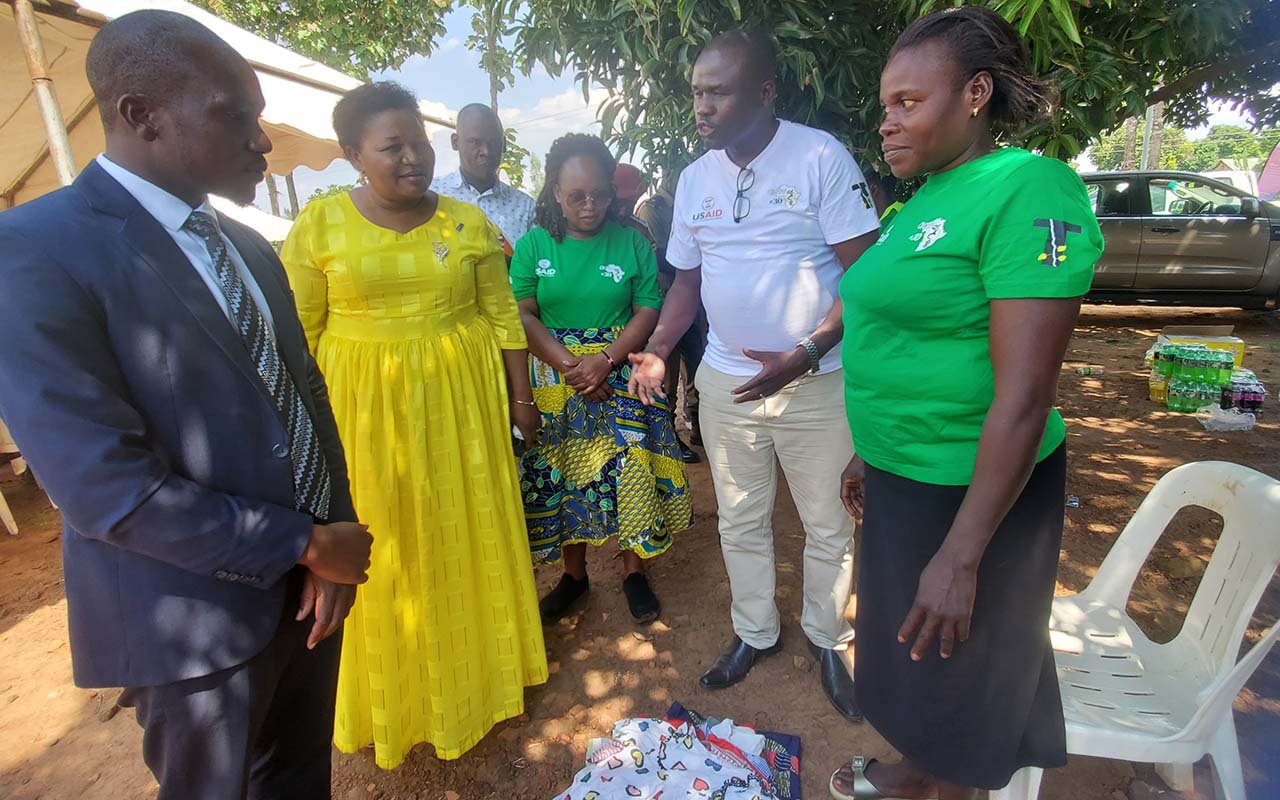Prime
Jinja vendors appeal to govt for relief funds

Some of the women vendors waiting for customers in Jinja Central Market on July 6. PHOTO | DENIS EDEMA
More than 600 vendors who have been sleeping in Jinja Central Market since the 42-day lockdown was announced have asked government to consider them for the Shs100,000 relief fund saying they are incurring losses due to lack of buyers.
The vendors made their plea on Tuesday while receiving the second batch of 200 mosquito nets from the Malaria Control Unit of the Ministry of Health. Two weeks ago, they received 400 mosquito nets.
Mr Abubaker Kirunda, who sells sweet potatoes, said the market is of no importance if there are no buyers accessing it.
“When President Museveni directed that those selling foodstuffs should stay in the markets and work, we were excited but there are no people coming to buy. Our items are now rotting,” said Mr Kirunda.
Mr Arafat Mwondha, a dealer in fruits and tomatoes, said he has lost his capital since all his items are rotten.
“There is no difference between us (vendors sleeping in the market) and those seated at home,” he said.
Mr Peter Okocha Kasolo, the Jinja City Mayor, said he is reaching out to various companies for support, especially for vulnerable persons.
“I am aware that many vulnerable people have been left out but I also want to make it clear that past leaders have not protected the image of the offices they occupied by not being transparent when investors donate support to the people,” Mr Okocha said.
Maj (Rtd) David Matovu, the Jinja resident city commissioner, said the government is doing its best to see that persons affected during the pandemic are assisted, although their numbers are many.
Meanwhile, at least 247 slum dwellers in Mpumudde, Jinja City South Division, under their umbrella organisation, Kawama Slum Dwellers Association, are stuck with more than 800 chicken and 40 pigs due to lack of market.
At the height of the first lockdown last year, Uganda Blessing Foundation, a Community-Based Organisation (CBO), donated broilers and pigs to more than 247 slum dwellers to boost their livelihoods.
However, by the time the President announced a similar lockdown last month, including the ban on inter-district travel; their chicken was ready for sale but most of their clients closed shop, leaving them stranded.
Ms Edith Nayika, a member of the association, said they had started saving money from the poultry and piggery farm but are worried they may lose all their chicken since they no longer have money to buy feeds.
“We started this poultry farm last year and we were expecting to sell this batch and get some money to start constructing permanent houses because we are tired of the dilapidated wooden houses,” Ms Nayika said.
Ms Janet Nasozi, also a member of the association, appealed to the government to find a market for their broilers
“This project was given to us by Good Samaritans, but it will go to waste if the government does not intervene by finding a market,” she said.
Mr Patrick Bijja, the chairperson of the association, said they are stuck with the chicken because they have used up all their capital to feed them yet they are ready for a market which is not there.
“We were supposed to sell the chicken within four weeks but are now in the sixth week,” Mr Bijja said.
He added: “We have used up all the money on feeds and our hands are now tied. Jinja Town is our main market for our products but people have been chased out of town. The government should find a way of supporting us.”
Mr Joseph Ojatum, the founder of Blessing Uganda, said: “The government should find a way of preparing these groups of women in times of calamities by funding their projects. At Blessing Uganda, we have started marketing their chicken online and have come up with a fundraising campaign under the theme, Buy chicken, feed a family.”
So far, more than 35 women and children received 200kgs of flour, beans and soap as relief for the 42-day lockdown.




